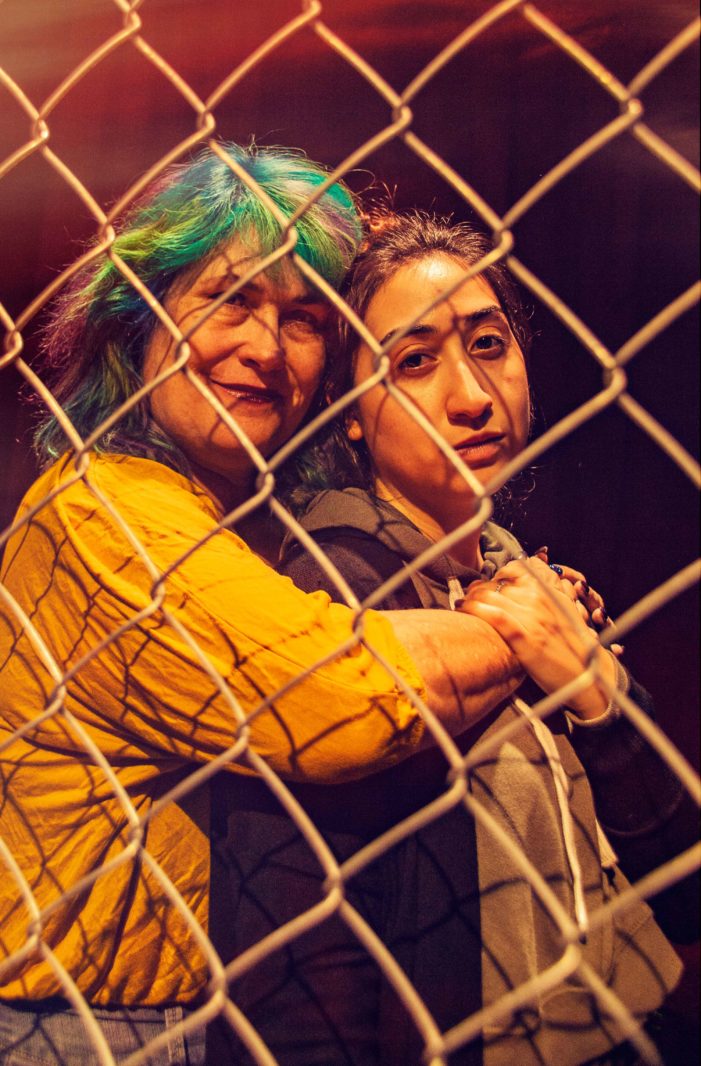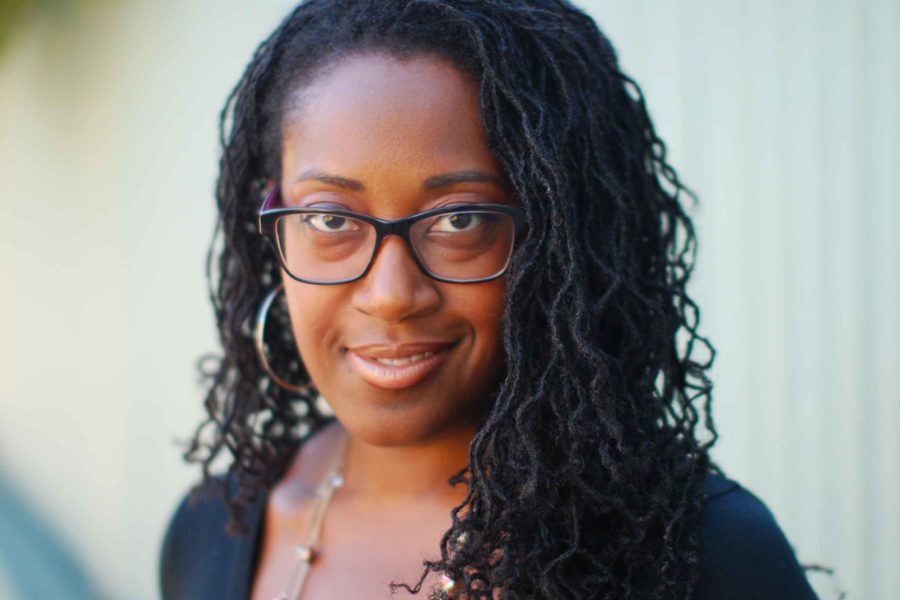Summer L. Williams directs Quiara Alegría Hudes and Erin McKeown’s musical “Miss You Like Hell,” a cross-country road trip taken by a mother and daughter, en route to the mother’s immigration hearing.
The play is as stimulating politically as it is theatrically compelling, and it is very, very current, grappling with issues on immigration and family in the Trump era. In it, a beautiful yet complex family relationship is explored as the audience shares a mosaic musical ride while the mother-daughter duo meets up with an unexpected cadre of American originals.
This is just how Williams likes it.
Williams, a director, producer and theater educator, is one of the co-founders of Boston’s award-winning Company One Theatre. For Hudes’ play, Company One is collaborating with American Repertory Theater’s Breakout series for a third time, presenting cutting-edge performances at the Oberon — A.R.T.’s club-type second stage in Cambridge — Jan. 10-27.
Williams says, “I’ve been a fan of Hudes’ work for a long time, so it seemed a natural and exciting decision for me to take on the challenge of directing ‘Miss You Like Hell.’” (You may know Hudes’ work as the book writer of the Broadway hit “In the Heights,” with whom she collaborated with Lin-Manuel Miranda, of “Hamilton” fame.)

Credit: Liv Slaughter
Johanna Carlisle-Zepeda and Krystal Hernandez perform in “Miss You Like Hell,” directed by Williams
Boston theatergoers have long been fans of Williams’s work, and her Company One — called by Boston magazine “the city’s most vital and diverse small-theater troupe” — re-invents itself with each production.
“At Company One, we are celebrating 20 years of making theater centered on our mission to build community at the intersection of art and social change,” Williams says. “We aim to touch your hearts and, at the same time, inspire you to join us in our goal of creating social action in Boston.”
At Company One, we are celebrating 20 years of making theater centered on our mission to build community at the intersection of art and social change. We aim to touch your hearts and at the same time, inspire you to join us in our goal of creating social action in Boston. — Summer L. Williams
Off stage and in addition to her role as Associate Artistic Director of Company One, Williams is a busy woman. She directs productions at theaters in the Boston area as well as the country’s regional theaters, and she teaches theater at Brookline High School as Associate Dean.
All the while, and despite her busy schedule, Williams is continually focused on affecting social change in any way she can.
Williams and her Company One co-founders met while students at Clark University. They had, and still do have, deep questions and concerns about social injustices, which is why, today, they carefully curate their productions and contributions to the community.
For high school students, Company One offers an Apprentice Program that includes communication, collaboration and critical thinking skills. Students are exposed to every element of a play’s production process, including directing, stage management and design. Students also learn resume writing, financial literacy and budgeting, which provides experiences useful in all walks of life. The goal is to develop young artists into the next generation of change-makers by allowing them to create theater that deals with social, political, and academic issues relevant to their age group. Students find inspiration by example, working alongside theater professionals, who operate with high expectations and within a safe, upbeat atmosphere of disciplined participation.
Ten years ago, in 2009, Williams won the Elliot Norton Award for Outstanding Director, marking the respect she receives from her peers. Directors and what they do can be overlooked by the press, who tend to focus their attentions on actors. Directors, in fact, are responsible for every single detail in a production, from what you see on stage, everything you don’t see on stage, from the mundane to the imagined world they are creating.
Williams feels extremely fortunate about her career, and does not take it for granted. As a female director, she’s been given a lot of choice, but the words “it has been tricky” do follow. Regarding opportunities for the majority of other female artists of color, she’s somewhat less positive, believing the theater community has not yet reacted adequately to the current shifting paradigm by making sure these artists are part of the collective conversation.
This season, Williams chose “Miss You Like Hell” because she finds it very layered, drawing her interest in the relationship between the mother and daughter, its creative theatricality and important message. Williams wants people to experience an event that involves not only political conviction, but emotion. A great story provokes thought and inspires action. Company One believes in a Boston defined by justice, equity and artistic innovation.
“At Company One we get to tell stories and amplify voices that are in direct opposition to those who want to break down the fabric of what could make America great,” Williams says. “So, this is how I fight. This is how we fight together.”
Miss You Like Hell
Oberon, 2 Arrow Street, Cambridge
Jan. 10 (preview), Jan. 11—27
$15-$45
Red Line, Harvard Square T stop



 4 min read
4 min read






